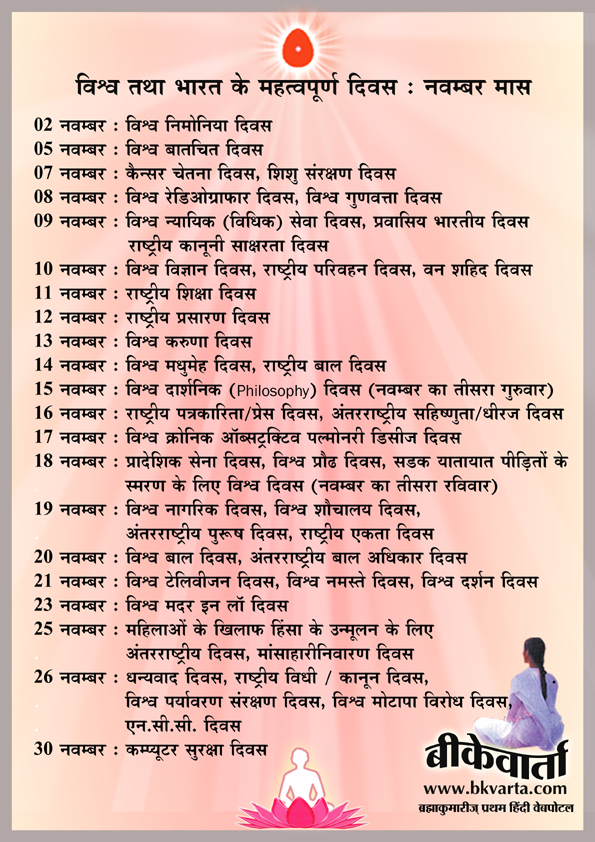धार्मिक प्रभाग

धार्मिक प्रभाग
Wing Objectives:
To stress the parallel and common points, values and practices between the religions as well as the elements of love and reconciliation asserted by all faiths.
To inspire people to follow, in practice, the teachings of their respective religious traditions rather than putting emphasis on ritual or proselytisation.
To promote religious harmony by bringing religious leaders together in an atmosphere of co-operation, dialogue and meditation or prayer.
To encourage members of all faith traditions to develop a broad and liberal attitude as well as a spirit of accommodation and reverence towards those of other faith traditions.
Views and Perspectives:
Centuries ago, the task of preserv ing people from moral and spiritual degeneration and of guiding them towards noble purpose and elevated aims belonged to the domain of Religion. Religion was ‘Might’ at that time, its authority over people empowered by truth and the living example of founders of the faiths and their inspired disciples.
It was when religion began to lose that authority that a schism developed between church and state, between religion and politics, between religious power and ruling power. In fact, this schism reflected an underlying rift within the human psyche: weakened by doubt and insecurity, self-control had become a matter of social norms rather than a matter of conscience.
Ever since, the main religious traditions have been struggling to regain their authority. Unfortunately, the means they have been using-forced conversions, abusive assertion of dogmas and practices and invasive transgressions of human rights-have not yielded the desired results. Religion itself has fomented a situation in which the members of one religion are pitted against the members of another. If religions themselves do not respect and uphold the fundamental right of people to choose a religion that suits their conscience, is it any wonder that many governments crush religious freedom and deny their people the right to practise their faith?
It is a fundamental view of the Brahma Kumaris that, just as there are different genealogical branches of a human being’s biological family tree, all religions are branches of one and the same human family tree. However whenever a branch has behaved or expected others to behave as if it were the tree itself, it has lost its value to humanity as a whole-irrespective of how inspiring its teachings, sacred its scriptures or intentionally purifying its practices.
The underlying cause of all intolerance, religious or otherwise, is ignorance of our true nature and relationship to each other. Although we clamour for rights, we have yet to fully embrace our responsibilities in this regard. We have widened the schisms between politics and religion-and between religion and religion-into almost unbridgeable chasms by underscoring differences rather than acknow-ledging commonalties.
The spiritual empowerment of religion means that supreme importance is given to non-violence, tolerance and forgiveness in inter-religious relationships. This means that religious leaders will first of all impart and exemplify tolerance of other faiths to their own congregations. They will teach them to respect other faith traditions as they would wish their own tradition to be respected and enlighten them as to those tenets and values where their morality and spirituality overlap. They will refrain from commenting negatively about the sensitive issues of any other religion, especially using language that inflames religious enmity. They will not, in the name of religion, persecute others, perpetrate cruelties or invade other countries. They will in fact denounce such acts committed in the name of religion-whether contemporary or historical-but even then they will do so without condemning the religion or its founder. They will conduct their gatherings, celebrations and processions in ways that do not create ill-will or public disturbance and will support with good will such functions of other faiths. They will never use their influence to lobby for the selfish or illegal gain of their faith or followers; rather they will use their moral muscle to free politics from corrupting influences.
When the principles and practices of each tradition are enlightened by spiritual wisdom and its dogmas are empowered by the spirit of brotherhood and co-operation, then religions will become inter-religious instead of irreligious and will complement each other by working together for the service and upliftment of humanity.
Tolerance, respect and understanding are the primary values which enable the celebration of life in all its diversity. Living according to these values develops spiritual vision. Sharing these values establishes the common ground on which we can live lovingly together as one human family.
| Religious Wing | |
| B. K. Prem, Dehradun Chairperson, Religious Wing Ph: 0135-2745472, 2644600 E-mail: dehradun@bkivv.org |
B. K. Manorama, Allahabad National Co-ordinator, Religious Wing Ph: 0532-2417428 Mob: 9450404514 E-mail: keetganj.ald@bkivv.org |
| B. K. Ramnath, Mount Abu HQ Co-ordinator, Religious Wing Mob: 9414150854 E-mail: bkreligiouswing@gmail.com |
|



